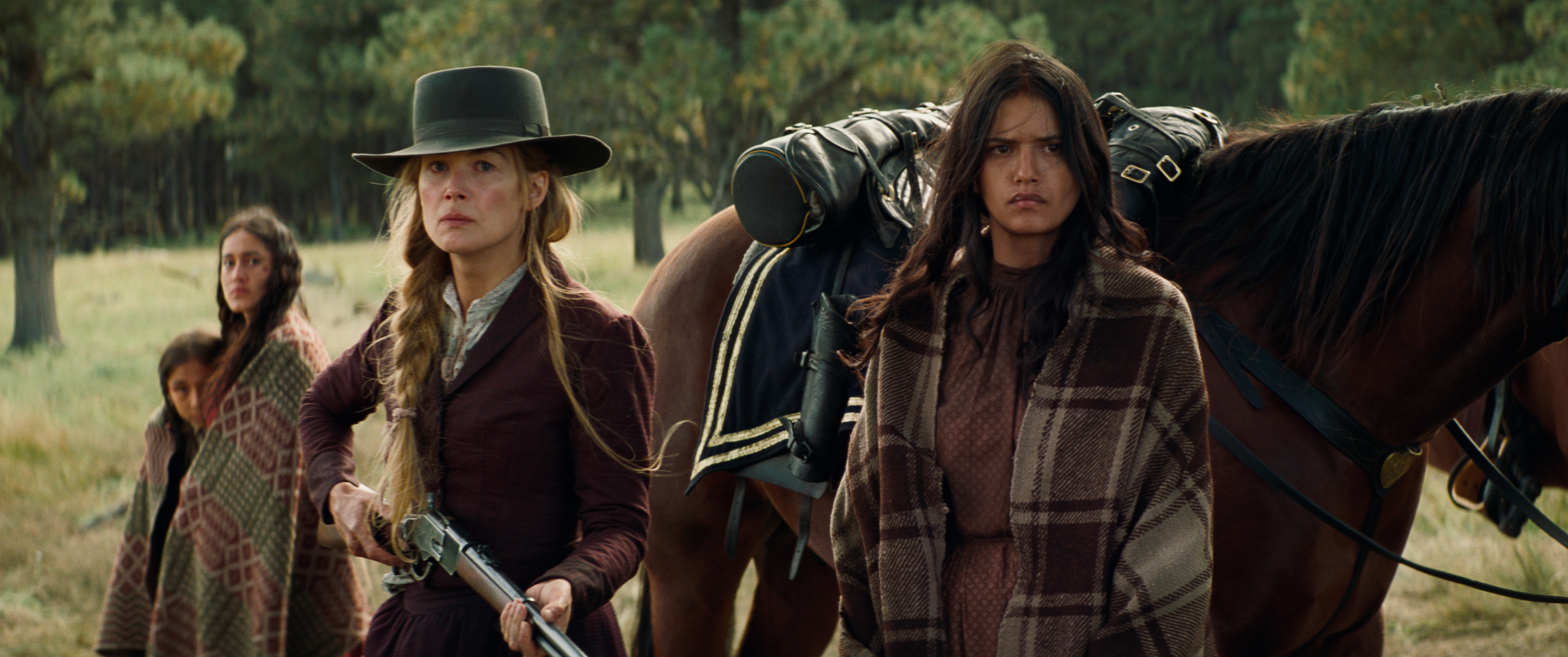Hostiles (2017): A Haunting Western That Grapples with the Cost of Hatred and the Hope of Redemption
Hostiles (2017), directed by Scott Cooper and starring Christian Bale and Rosamund Pike, is a powerful, meditative Western that explores the dark legacy of violence, racism, and trauma in post-Civil War America. Set in 1892, the film follows a hardened U.S. Army captain tasked with escorting a dying Cheyenne war chief and his family back to their ancestral land in Montana. Along the way, the journey becomes a searing examination of humanity’s capacity for both cruelty and compassion.
Captain Joseph Blocker (Christian Bale) is introduced as a battle-scarred veteran with deep-seated hatred for Native Americans, having spent years fighting brutal frontier wars. When ordered to accompany Chief Yellow Hawk (Wes Studi)—a former enemy—on a journey from New Mexico to Montana, Blocker is forced to confront not only his prejudices but also the trauma and moral ambiguity that have shaped his identity. Wes Studi’s dignified, restrained performance as Yellow Hawk brings complexity to a role that could have easily fallen into stereotype. Their evolving relationship forms the emotional backbone of the story.

Joining them along the route is Rosalie Quaid (Rosamund Pike), a woman left shattered after witnessing the massacre of her husband and children by a Comanche raiding party. Pike’s performance is raw and devastating, offering a poignant depiction of grief, shock, and eventual resilience. As the group travels through a violent and lawless American landscape, they encounter threats not just from hostile tribes but from desperate settlers, outlaws, and even the U.S. military itself. These encounters force the characters into uneasy alliances, revealing that in this fractured world, the line between friend and enemy is blurred.
Visually, Hostiles is breathtaking. Cinematographer Masanobu Takayanagi captures the vast, unforgiving beauty of the American West with a painterly eye. From sun-scorched deserts to snow-draped forests, the landscape itself becomes a character—reflecting both the external journey and the internal turmoil of the film’s protagonists. The musical score by Max Richter enhances this mood with a haunting, minimalist elegance that underscores the film’s introspective tone.

What distinguishes Hostiles from more traditional Westerns is its deliberate pace and moral complexity. It does not glorify violence or portray clear heroes and villains. Instead, it meditates on the psychological cost of war and the potential for healing through shared suffering. Themes of redemption, reconciliation, and the human cost of systemic hatred are front and center, lending the film a gravitas and relevance that extends beyond its historical setting.
Hostiles is not an easy watch—it is intense, at times brutal, and deeply somber. But for those willing to engage with its emotional and philosophical depths, it offers a profoundly moving experience. It reminds us that healing is possible, even in the most unlikely of circumstances, and that understanding and respect can emerge from the ashes of mutual destruction.
In an era of increasing polarization, Hostiles speaks with quiet urgency about the need to face our darkest histories and choose empathy over vengeance. It’s a modern Western that lingers long after the credits roll.


/pic7411952.jpg)